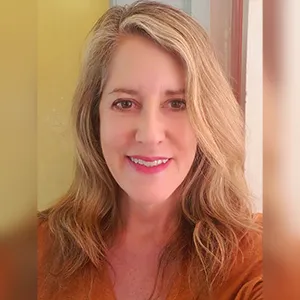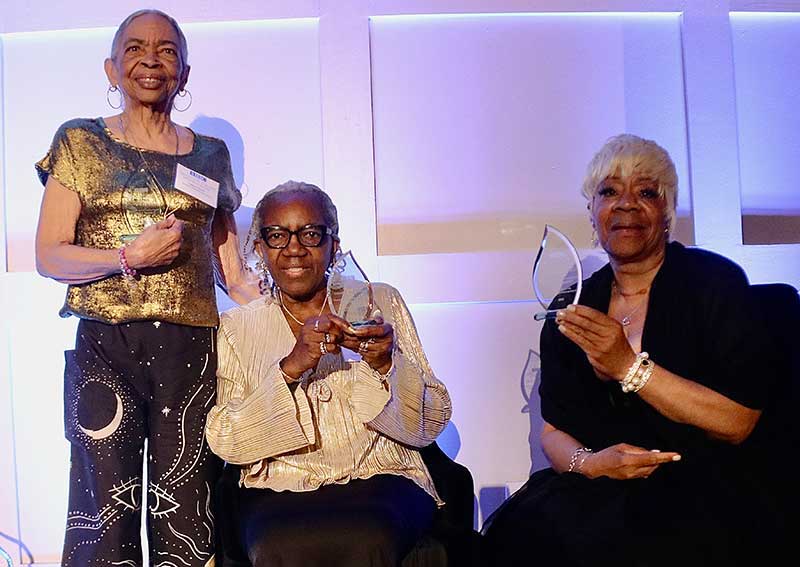Over the past 50 years, profound changes in family structures have altered the way many families organize to raise their children. Family forms have diversified as a consequence of increased divorce rates and the proliferation of single-parent families, thereby increasing the need of parents to rely on extended family support for care of their children. Yet, in spite of the proliferation of grandparent-headed families, public policy in the United States has not kept pace with challenges posed by this non-traditional family form.
You might think these words were written today to reflect the current situation of our nation’s kinship and grandfamilies. In fact, they were written more than fifteen years ago, and underscore the sad reality that, other than the scope of the problem, not much has changed in two decades. While public policies remain stagnant in the quagmire of partisan politics and social apathy, the number of kinship/grandfamilies in the United States continues to soar.
According to data from the U.S. Census Bureau, as of September 2023, kinship/grandfamilies now raise over 2.4 million of the nation’s children. About half of those caregivers are aged sixty and older. We at SeniorLAW Center know the reasons for these staggering statistics include parental substance abuse, undiagnosed or intreated mental illness, incarceration, and premature death. Studies point to as much as a fifty-percent increase in caregivers reporting parental drug use as the impetus to create their kinship/grandfamilies.
Strongly rooted in the soil of a puritanical obsession with self-reliance, the American model of social welfare tends to proffer the scarlet letter of shame rather than grow a communal garden of public assistance and support. This historical notion of poverty and non-normativity equaling a contagion of moral failing leaves the most vulnerable out in the cold. “Variations in the treatment and status of those disadvantaged and marginalized by race, class, gender, and age—all (are) relevant descriptors of the population of grandparents raising grandchildren.” A feminist perspective offers insight as it points out that society views family caregiving as “an experience of obligation, structured by the gender-based division of domestic labor and the devaluing of unpaid work by public institutions.”
As personal finance writer, Amy Fontinelle points out, grandparents raising grandchildren confront emotional challenges ranging from grieving the circumstances that put them in charge to coping with the loss of their independence. Additionally, they encounter legal obstacles associated with obtaining custody, navigating school enrollment, and accessing social services and medical care. Even putting food on the tables involves wending one’s way through a labyrinth of bureaucratic bumble and draconian demands.
For example, to receive Temporary Assistance for Needy Families (TANF), grandparents must do more than verify their standing in loco parentis. Current law requires any applicant or recipient who applies for the Families (TANF) program, whether parent or nonparent, to pursue support against the non-custodial parent.
Before the state will disburse the modest monthly benefit of $200.00, it requires grandparents to file a complaint for support against the child’s parents – parents who, more often than not, are their own children. The state enforces this requirement even with the knowledge that many absent birth parents live with addiction and have little to no income. These intrusive and unwarranted intervention forces grandparents to choose between their children and their children’s children. Trauma upon trauma – what justice can we find in that?
Dorothy Roberts, a professor of law, sociology, and civil rights at the University of Pennsylvania, has written extensively about the disparate impact this type of state intervention has on Black families. According to Roberts, the American child-welfare system separates one in ten Black children from their parents. In a 2022 article, Professor Roberts wrote:
As mandated reporters, providers of social services direct state surveillance against poor and low-income families — especially Black families. And using social services, receiving welfare benefits, and living in public housing subject families to an extra layer of contact with these mandated reporters. Public workers are far more likely to report suspicions about their clients (essentially because they are poor) than their counterparts in the private sector (who work with a more affluent, paying clientele). Regardless of income, healthcare professionals, for example, are more suspicious of Black families than other groups who bring their injured children to the hospital.
Even if they know that addiction has caused the need for grandparents to step in and that the birth parents have no or limited income. Forcing families to litigate against one another destabilizes an already delicate and often precarious intergenerational dynamic. Parents and children as adversarial parties will never create the foundation necessary to establish and nurture strong family ties.
Additionally, imposing the burden of an adversarial court proceeding on families whose financial stability remain fragile at best, can result in non-custodial parents prematurely attempting to regain custody for all the wrong reasons. Moreover, the current law undermines the autonomy of grandfamilies. It removes the freedom of choice from those best positioned to choose. Grandparents raising grandchildren (or great-grandchildren) have the lived experience of family history. Such wisdom can inform an analysis of the pros and cons of suing for child support. Depriving the actual family members of the ability to exercise their best judgment also forces them back into the unnavigable waters of family court and public benefits. Finally, in a vast majority of cases, the obligation to pursue support against noncustodial parents squanders judicial resources because many of the defendants simply lack the means to meet the financial responsibility imposed upon them. This financial insecurity, among other reasons, often factored into their relinquishing custody in the first place.
State Representative Darisha K. Parker (D) District 198 understands. She has introduced legislation to adjust the Child Support Enforcement Program. Representative Parker’s proposed adjustments would mean that only applicant and recipient parents would need to meet the program’s requirements to receive assistance for a child. On January 31, 2024, Parker introduced her proposed amendment as Pennsylvania House Bill 1962. The bill currently sits with the Judiciary Committee. Explaining her sponsorship of the amendment, Representative Parker stated:
Grandparents and other non-parent relatives play a vital role in the upbringing of children across the Commonwealth. As of 2021, an estimated 259,000 children in Pennsylvania live in a household where grandparents or other relatives are the main caretakers, and 235,515 grandparents are responsible for their grandchildren. Unfortunately, over 20% of grandparents that are the primary caretakers of children are living below the poverty level. There are far too many barriers to receiving assistance for non-parent relatives that are taking care of their family member’s children, and far too many of these relatives are struggling to make ends meet to provide for such children.
One month prior to the introduction of HB 1962, On December 14, 2023, Governor Shapiro approved House Bill No. 1058. Representative Rick Krajewski (D) District 188, sponsored the bill, also known as Act 48. The new law, which went into effect in February of this year, endows kinship caregivers with more rights in the Commonwealth’s child welfare system. Under Act 48, Pennsylvania courts must consider the opinions of individuals involved with family finding and kinship care programs before and during dependency proceedings. “According to a memorandum issued by Krawjewski, various research studies have shown that placing children in kinship care is more beneficial for both the children and their families.”
Act 48 recognizes the challenges grandparents face when struggling to raise grandchildren. unavailable to care for their children. It allows for parental designation or court appointment of a temporary guardian to serve the best interests of the child. Although applicable in a narrow set of circumstances, Act 48 creates an expedited path to allow grandparents to make necessary legal decisions when parents cannot.
At the federal level in Washington, Senator Bob Casey (D) has championed grandparents raising grandchildren. In 2018, he sponsored the Supporting Grandparents Raising Grandchildren Act, which created a federal advisory council to support grandparents raising grandchildren. Last year he introduced the Grandfamilies Act, which seeks to expand grandfamilies’ access to Social Security and TANF benefits. In particular, the bill would increase access to Social Security child benefits for children who are cared for by a relative who receives Social Security and expand access to TANF by removing barriers for grandfamilies. Such measures have critical import for grandfamilies, twenty percent of whom live below the poverty line.
Senator Casey has also underscored the equally critical need for appropriate housing for grandfamilies. Age limits further exacerbate the difficulty of grandfamilies finding housing suitable to raising children. The Grandfamily Housing Act addresses this need by authorizing a nationwide grant that would fund intergenerational housing and support housing providers in providing on site assistance to intergenerational families. Senator Casey notes:
Grandparents and caregivers who take up the mantle to raise children and provide them with safe and stable homes should be supported every step of the way. This legislation would ensure grandfamilies are able to live in homes that are safe and accessible and ensure both older adults and younger children alike can thrive in their communities.
While important, these legislative changes represent a drop in the ocean of public policy and social justice. Alternatively dismissed with the faint praise of “heroism” or shunned like Hester Prynne and Pearl left to freeze in a winter of grandparents raising grandchildren need more than lip service or public sympathy. Systemic advocacy, direct legal services, and the shedding of our puritanical past – all are critical to effect meaningful change.
Since 2019, SeniorLAW Center has served over four-hundred older adults self-identifying as kinship or grandparent caregivers in a wide array of legal issues affecting their lives. We have advised, provided brief services, and offered extended representation to nearly two-hundred older adults seeking legal custody of grandchildren or great grandchildren already in their care. Without access to free or low-cost legal representation the story may not end as well for the grandparents who are responsible for raising 21,000 grandchildren in Philadelphia.
SeniorLAW Center remains the only organization delivering statewide free legal advice and information to older kinship caregivers through our PA SeniorLAW HelpLine (1.877.PA SR LAW). With the generous support of the William Penn Foundation, we provide free full representation for grandparents raising grandchildren in Philadelphia.
In 2023, we launched the Grandparents Justice Advisory Council to advise our work and to raise the voices and experiences of grandparents taking on the daunting role of parenting in their older years. We proudly honored them as Champions for Justice at our 2024 gala. We have the privilege to work alongside them to make change and expand our capacity to serve these families. We issue a call to action for all Pennsylvanians to support them.
You can do so by urging legislatures to pass grandfamily friendly legislation, like the Grandfamilies Act and the Grandfamily Housing Act. Pennsylvania Bar members may volunteer with SeniorLAW Center to represent grandfamilies in custody matters. Businesses and non-profit communities can earmark grants to fund programs that serve grandfamilies: from legal services that help grandfamilies navigate complex legal systems to educational and summer programs that improve the quality of grandfamilies.
How we raise the children in our society will shape the society that will one day look after or abandon us – just as we looked after or abandoned them.
If you would like to support or volunteer your time with SeniorLAW Center’s Grandparents Raising Grandchildren project, please contact Heather Kelly at hkelly@seniorlawcenter.org
SeniorLAW Center seeks justice for older people by using the power of the law, educating the community and advocating on the local, state and national levels. We serve over 10,000 older people each year. Our vision is a world that values older people, hears their voices and guarantees their rights. SeniorLAW Center changes individual lives and works to change systems to promote justice, security, and independence for older Americans and their families. To donate to SeniorLAW Center, visit SeniorLAWCenter.org/Donate or click below.





